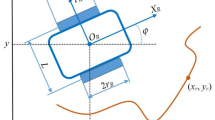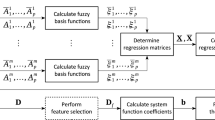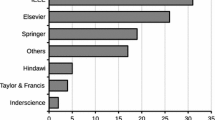Abstract
Performance assessment is crucial for managing the health of complex systems, including single-agent and multi-agent systems. However, research on the latter has been relatively sparse. Approaches to assessing system performance must consider both assessment result accuracy and process explainability, especially in cases with small or unbalanced samples, which limits the application of data-driven approaches. In this paper, the Belief Rule Base (BRB) grey-box expert system is adopted to assess the performance of leader-following multi-agent systems subject to switching topologies and unpredictable disturbances. By fusing historical data and expert knowledge, the precision of assessment results and the traceability of the assessment process are balanced. Two time-varying features based on the states and distributed communication characteristics of the leader-following MASs are designed as model input. The robustness of the feature matching degree is quantitatively analysed, and the obtained robustness factors can reflect their effectiveness on the final performance utility produced by the BRB model. This approach helps raise the cognitive ability of specialists and devise more rational model structures and initial parameters. In comparative studies, better prediction accuracy of the proposed BRB performance assessment model is demonstrated compared to other classical models based on small training samples, while avoiding an opaque inference process.
Similar content being viewed by others
References
Zhao, F., Zhou, Z., Hu, C., Cao, Y., Han, X., Feng, Z.: A new safety assessment method based on evidential reasoning rule with a prewarning function. IEEE Access 6, 31862–31871 (2018). https://doi.org/10.1109/ACCESS.2018.2815631
Zhou, Z., Cao, Y., Hu, G., Zhang, Y., Tang, S., Chen, Y.: New health-state assessment model based on belief rule base with interpretability. Sci. China Inf. Sci. 64(7), 172214 (2021). https://doi.org/10.1007/s11432-020-3001-7
Chen, Z., Wu, M., Zhao, R., Guretno, F., Yan, R., Li, X.: Machine remaining useful life prediction via an attention-based deep learning approach. IEEE Trans. Industr. Electron. 68(3), 2521–2531 (2021). https://doi.org/10.1109/TIE.2020.2972443
Bashiri Mosavi, A., Amiri, A., Hosseini, H.: A learning framework for size and type independent transient stability prediction of power system using twin convolutional support vector machine. IEEE Access 6, 69937–69947 (2018). https://doi.org/10.1109/ACCESS.2018.2880273
Xu, X., Yang, R., Fu, Y.: Situation assessment for air combat based on novel semi-supervised naive bayes. J. Syst. Eng. Electron. 29(4), 768–779 (2018). https://doi.org/10.21629/JSEE.2018.04.11
Mukherjee, R., De, A.: Development of an ensemble decision tree-based power system dynamic security state predictor. IEEE Syst. J. 14(3), 3836–3843 (2020). https://doi.org/10.1109/JSYST.2020.2978504
Akırmak, O.O., Altan A.: Estimation of extrusion process parameters in tire manufacturing industry using random forest classifier. Balkan J. Electr. Comput. Eng. 11(2), 138–143 (2023). https://doi.org/10.17694/bajece.1232811
He, W., Qiao, P., Zhou, Z., Hu, G., Feng, Z., Wei, H.: A new belief-rule-based method for fault diagnosis of wireless sensor network. IEEE Access 6, 9404–9419 (2018). https://doi.org/10.1109/ACCESS.2018.2808605
Hu, G., Qiao, P.: Cloud belief rule base model for network security situation prediction. IEEE Commun. Lett. 20(5), 914–917 (2016). https://doi.org/10.1109/LCOMM.2016.2524404
Tang, S., Zhou, Z., Hu, C., Zhao, F., Cao, Y.: A new evidential reasoning rule-based safety assessment method with sensor reliability for complex systems. IEEE Trans. Cybern. 52(5), 4027–4038 (2022). https://doi.org/10.1109/TCYB.2020.3015664
Zhou, Z., Cao, Y., Hu, G., Zhang, Y., Tang, S., Chen, Y.: New health-state assessment model based on belief rule base with interpretability. Sci. China Inf. Sci. 64(7), 172214 (2021). https://doi.org/10.1007/s11432-020-3001-7
Li, G., Zhou, Z., Hu, C., Chang, L., Zhou, Z., Zhao, F.: A new safety assessment model for complex system based on the conditional generalized minimum variance and the belief rule base. Saf. Sci. 93, 108–120 (2017). https://doi.org/10.1016/j.ssci.2016.11.011
Yang, L., Wang, Y., Chang, L., Fu, Y.: A disjunctive belief rule-based expert system for bridge risk assessment with dynamic parameter optimization model. Comput. Ind. Eng. 113, 459–474 (2017). https://doi.org/10.1016/j.cie.2017.09.027
Chang, L., Dong, W., Yang, J., Sun, X., Xu, X., Xu, X., Zhang, L.: Hybrid belief rule base for regional railway safety assessment with data and knowledge under uncertainty. Inf. Sci. 518, 376–395 (2020). https://doi.org/10.1016/j.ins.2019.12.035
Feng, Z., Zhou, Z., Hu, C., Ban, X., Hu, G.: A safety assessment model based on belief rule base with new optimization method. Reliab. Eng. Syst. Saf. 203, 107055 (2020). https://doi.org/10.1016/j.ress.2020.107055
Feng, Z., He, W., Zhou, Z., Ban, X., Hu, C., Han, X.: A new safety assessment method based on belief rule base with attribute reliability. IEEE/CAA J. Autom. Sin. 8(11), 1774–1785 (2021). https://doi.org/10.1109/JAS.2020.1003399
Yang, R., Liu, L., Feng, G.: Cooperative output tracking of unknown heterogeneous linear systems by distributed event-triggered adaptive control. IEEE Trans. Cybern. 52(1), 3–15 (2022). https://doi.org/10.1109/TCYB.2019.2962305
Yang, R., Liu, L., Feng, G.: Cooperative tracking control of unknown discrete-time linear multiagent systems subject to unknown external disturbances. IEEE Trans. Cybern. 1–13 (2022). https://doi.org/10.1109/TCYB.2022.3179467
Qian, Y., Liu, L., Feng, G.: Distributed dynamic event-triggered control for cooperative output regulation of linear multiagent systems. IEEE Trans. Cybern. 50(7), 3023–3032 (2020). https://doi.org/10.1109/TCYB.2019.2905931
Zhang, H., Chen, J., Wang, Z., Fu, C., Song, S.: Distributed event-triggered control for cooperative output regulation of multiagent systems with an online estimation algorithm. IEEE Trans. Cybern. 52(3), 1911–1923 (2022). https://doi.org/10.1109/TCYB.2020.2991761
Bi, C., Xu, X., Liu, L., Feng, G.: Robust cooperative output regulation of heterogeneous uncertain linear multiagent systems with unbounded distributed transmission delays. IEEE Trans. Autom. Control 67(3), 1371–1383 (2022). https://doi.org/10.1109/TAC.2021.3069718
Altan A., Aslan O., Hacıoğlu R.f (2018) Real-time control based on narx neural network of hexarotor uav with load transporting system for path tracking. In: 2018 6th International Conference on Control Engineering and Information Technology (CEIT). pp 1–6 https://doi.org/10.1109/CEIT.2018.8751829
Altan, A., Hacıoğlu, R.: Model predictive control of three-axis gimbal system mounted on uav for real-time target tracking under external disturbances. Mech. Syst. Signal Process. 138, 106548. https://doi.org/10.1016/j.ymssp.2019.106548
Lu, M., Liu, L.: Leader-following consensus of multiple uncertain euler-lagrange systems subject to communication delays and switching networks. IEEE Trans. Autom. Control 63(8), 2604–2611 (2018). https://doi.org/10.1109/TAC.2017.2771318
Lu, M., Liu, L.: Leader-following consensus of multiple uncertain euler-lagrange systems with unknown dynamic leader. IEEE Trans. Autom. Control 64(10), 4167–4173 (2019). https://doi.org/10.1109/TAC.2019.2892384
Wu, Y., Zhang, H., Wang, Z., Zhang, C., Huang, C.: Leader-following and leaderless consensus of linear multiagent systems under directed graphs by double dynamic event-triggered mechanism. IEEE Trans. Syst. Man Cybern. Syst 52(10), 6426–6438 (2022). https://doi.org/10.1109/TSMC.2022.3145575
Wu, Z., Xu, Y., Lu, R., Wu, Y., Huang, T.: Event-triggered control for consensus of multiagent systems with fixed/switching topologies. IEEE Trans. Syst. Man Cybern. Syst 48(10), 1736–1746 (2018). https://doi.org/10.1109/TSMC.2017.2744671
Yu, W., Wang, H., Cheng, F., Yu, X., Wen, G.: Second-order consensus in multiagent systems via distributed sliding mode control. IEEE Trans. Cybern. 47(8), 1872–1881 (2017). https://doi.org/10.1109/TCYB.2016.2623901
Rong, L., Liu, X., Jiang, G., Xu, S.: Event-driven multiagent consensus disturbance rejection with input uncertainties via adaptive protocols. IEEE Trans. Syst. Man Cybern. Syst. 52(5), 2911–2919 (2022). https://doi.org/10.1109/TSMC.2021.3055398
Su, Y., Huang, J.: Stability of a class of linear switching systems with applications to two consensus problems. IEEE Trans. Autom. Control 57(6), 1420–1430 (2012). https://doi.org/10.1109/TAC.2011.2176391
Feng, Q., Hai, X., Sun, B., Ren, Y., Wang, Z., Yang, D., Hu, Y., Feng, R.: Resilience optimization for multi-uav formation reconfiguration via enhanced pigeon-inspired optimization. Chin. J. Aeronaut. 35(1), 110–123 (2022). https://doi.org/10.1016/j.cja.2020.10.029
Belge, E., Altan, A., Hacıoğlu, R.F.: Metaheuristic optimization-based path planning and tracking of quadcopter for payload hold-release mission. Electronics 11(8) (2022) https://doi.org/10.3390/electronics11081208
Altan A (2020) Performance of metaheuristic optimization algorithms based on swarm intelligence in attitude and altitude control of unmanned aerial vehicle for path following. In: 2020 4th International Symposium on Multidisciplinary Studies and Innovative Technologies (ISMSIT). pp. 1–6 https://doi.org/10.1109/ISMSIT50672.2020.9255181
Funding
This work was supported partly by the National Natural Science Foundation of China under Grant No. 62203461 and No. 62203365, partly by the Fundamental Research Funds for the Central Universities under Grant No. D5000210690, partly by the Natural Science Basic Research Program of Shaanxi under Grant No. 2022JQ-580, partly by the Young Talent Promotion Program of Shaanxi Association for Science and Technology under Grant No.20220121, partly by the Harbin Normal University Graduate Student Innovation Program under Grant No. HSDSSCX2023-4. Authors Wei He and Zhichao Feng have received research support from the State Key Laboratory of Intelligent Control and Decision of Complex Systems.
Author information
Authors and Affiliations
Contributions
All authors contributed to the study conception and design. Material preparation, data collection and analysis were performed by Haoran Zhang. The first draft of the manuscript was written by Haoran Zhang and all authors commented on previous versions of the manuscript. All authors read and approved the final manuscript.
Corresponding author
Ethics declarations
Competing interests
The authors have no relevant financial or non-financial interests to disclose.
Additional information
Publisher's Note
Springer Nature remains neutral with regard to jurisdictional claims in published maps and institutional affiliations.
Rights and permissions
Springer Nature or its licensor (e.g. a society or other partner) holds exclusive rights to this article under a publishing agreement with the author(s) or other rightsholder(s); author self-archiving of the accepted manuscript version of this article is solely governed by the terms of such publishing agreement and applicable law.
About this article
Cite this article
Zhang, H., He, W., Yang, R. et al. Performance Assessment for Leader-Following Multi-Agent Systems with Unpredictable Disturbances and Switching Topologies Via Belief Rule Base. J Intell Robot Syst 109, 62 (2023). https://doi.org/10.1007/s10846-023-01990-4
Received:
Accepted:
Published:
DOI: https://doi.org/10.1007/s10846-023-01990-4




